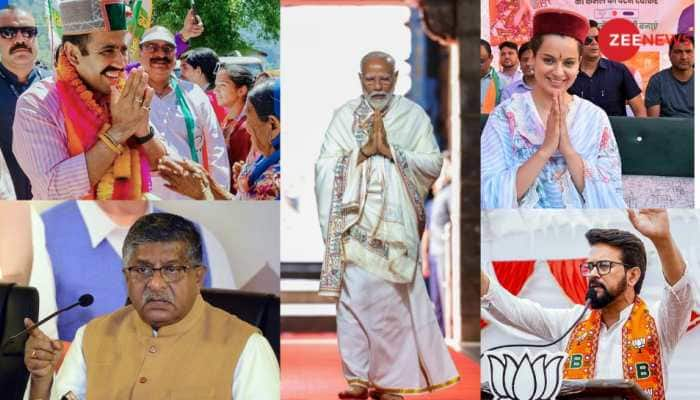Sachin Tendulkar, witness to a cricket revolution
Sachin Tendulkar may have been a constant at the crease for nearly a quarter of a century but the game of cricket underwent a revolution in that time.
Trending Photos
New Delhi: Sachin Tendulkar may have been a constant at the crease for nearly a quarter of a century but the game of cricket underwent a revolution in that time, with India now established as the dominant power.
A look back at Tendulkar’s glorious career – Part 1»
A look back at Tendulkar’s glorious career – Part 2»
When 16-year-old Tendulkar strode out to bat against Pakistan in November 1989, the West Indies were the world`s number one side, South Africa was still a sporting pariah and Twenty20 cricket was unheard of.
Meanwhile concepts such as Duckworth-Lewis, powerplays and snicko had yet to trouble the game`s governing body -- then ensconced in the old-world splendour of Lord`s in London before moving in 2005 to newly-built offices in Dubai.
But while Dubai plays host to the International Cricket Council, observers say there is little doubt that Tendulkar`s India now exercises the real levers of power and its board is not afraid to flex its financial muscle.
According to Lawrence Booth, editor of the cricketers` almanack Wisden, India -- a cricket-mad nation which is home to more than a billion people -- is now the undisputed superpower of a game previously dominated by England.
"Cricket should never be sniffy about the fact that the world`s second-most populous country regards it as their national sport," Booth said.
"And the less well-off national cricket boards are utterly reliant on hosting Indian tours to top up their coffers, almost exclusively through the vast TV deals they can broker with Asian channels."
Booth dates the eastwards shift of power to the 1996 World Cup, the second time that the 50-over tournament was staged on the subcontinent.
But it was India`s unexpected victory in the inaugural World Twenty20 in South Africa in 2007 that really ushered in a sea-change, leading to the launch of the Indian Premier League a year later.
The Board of Control for Cricket in India (BCCI) ironically was cool on Twenty20 in its infancy, fearing matches that lasted for only 40 overs would generate far less television advertising revenue than the 100 overs a day format.
But since its launch, the IPL has drawn the world`s top players who turn out for city-based franchises owned by business moguls and Bollywood actors.
Some players have earned in excess of a million dollars for the six-week tournament, leading stars such as the West Indies` Chris Gayle to snub their national teams when their tours clashed with the Indian league.
"I wonder to what extent the BCCI takes seriously its position at the forefront of the global game. Do they care about global cricket, or merely Indian cricket?" said Booth.
But Amrit Mathur, former manager of the Indian national team who is now chief executive of the IPL`s Delhi Daredevils, insisted changes on and off the field during Tendulkar`s era had transformed things for the better.
"It`s amazing to think that one player has gone through the whole set of changes," Mathur said.
"There is much more money and there`s much more cricket. Players know there is much more at stake."
He said players we’re having to come up with new shots, like the backwards scoop, and carry out spectacular fielding.
"It`s much more competitive, more intense and that`s improved the quality of play."
Tendulkar himself has appeared lukewarm about T20. While he turns out for the Mumbai Indians, he made a solitary appearance for the national side in 2006 before making himself unavailable.
He has been similarly cool towards another major development of the last few years -- the introduction of the decision review system (DRS) which allows teams to appeal umpires` rulings through television replays.
The Indian team refuses to allow DRS in its matches, a rejection widely attributed to Tendulkar`s opposition.
Mathur points out however that Tendulkar has been one of the main beneficiaries of the advances in cricket, particularly on the commercial front.
His image adorns billboards across India and he has made a fortune from advertising products on TV ranging from Coca Cola to Castrol oil. He even has his own personal care brand known as "Sach".
"He started his career in the late 1980s, when Indian cricket had yet to tap into its financial potential, but as he rose to prominence, it clearly helped that the BCCI had an obvious poster boy," said Booth.
"Would Indian cricket be where it is today had Tendulkar not existed? Probably. But it would have a less compelling story to tell."
Advertisement
Live Tv
Advertisement







)
)
)
)
)
)
)
)
)
)
